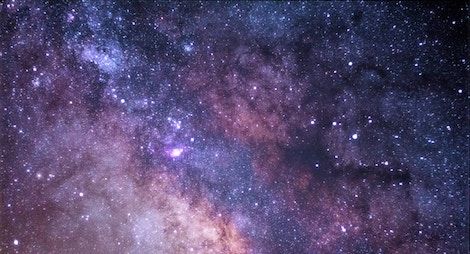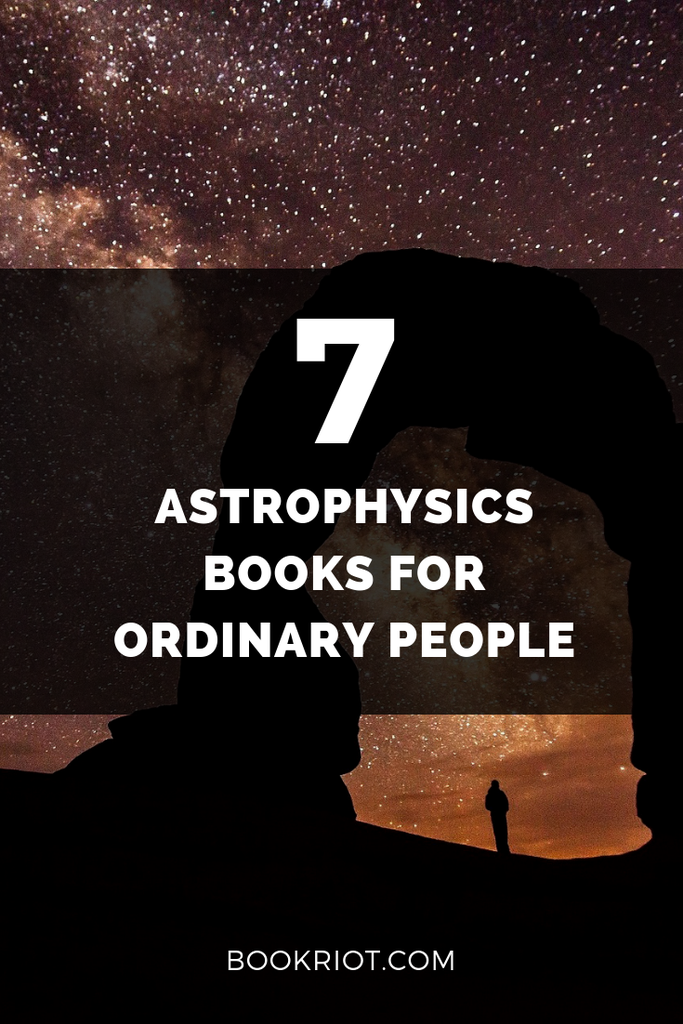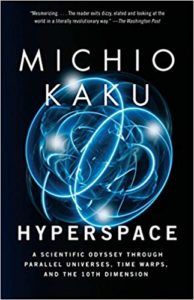
7 Astrophysics Books For Ordinary People
We live in heady times. Hushed families gather around the glowing screen for news of the Higgs Boson—no? Just mine? Oh well. In that case, trust me when I say that we’re lucky to be alive right now. Take a gander at this first-ever, super exciting photograph of a black hole. Look at that and be excited! That’s one of the great mysteries of our universe and we now have it on film. We already have a great list of astronomy books on Book Riot, but it’s time that the world knew more about the why and wherefore of black holes so that it can properly appreciate how insanely baller it is that we’ve finally got a profile pic. Here are a few of the best astrophysics books for ordinary people to start you off.
Asteroid Hunters by Carrie Nugent
You probably know asteroids from the big one that left its autograph on the Yucatan Peninsula. You know, the one that killed the dinosaurs? Since that catastrophic impact with fate, Earthlings have gotten more careful about the rocks in the sky. Follow Nugent into our solar neighborhood as she seeks—and maybe destroys—the cosmic objects that could threaten life on our planet.
Black Holes, Wormholes and Time Machines by Jim Al-Khalili
When I first read this in 1999, it hooked me into space science for years. Since then, there have been several significant developments, so in 2016, Al-Khalili updated it. Don’t let yourself be scared off by the fact that it comes from the heavy science CRC press. Khalili is a fun, engaging writer who matches his astrophysics chops with literary style.
Catching Stardust: Comets, Asteroids and the Birth of the Solar System by Natalie Starkey
Asteroids aren’t always our deadly enemies. In fact, space objects might have seeded life on Earth by bringing water to our newly-formed planet eons ago! Despite the tragic loss of the dinosaurs (RIP), asteroids may have done way more good than harm for our little blue dot.
 Hyperspace: A Scientific Odyssey Through Parallel Universes, Time Warps, and the Tenth Dimension By Michio Kaku
Hyperspace: A Scientific Odyssey Through Parallel Universes, Time Warps, and the Tenth Dimension By Michio Kaku
This book is a little dated, but way too much fun not to include here. Kaku takes you on a truly wild ride through the craziest corners of physics, including the tenth dimension. This is one to make you fall in love with the wackiest possible theories about how space works.
The Planet Factory: Exoplanets and the Search for a Second Earth by Elizabeth Tasker
Exoplanets orbit stars other than our own, and boy howdy are they weird. How they form, spin, and behave with one another influences whether or not life can survive on them. Is Earth unique? Or are there other candidates for living habitats out there? You’ll be packing your bags for the stars before you’re done with this book. Even when an exoplanet isn’t an ideal habitat, it’s always an adventure.
The Zoomable Universe: An Epic Tour Through Cosmic Scale, from Almost Everything to Nearly Nothing by Caleb Scharf and Ron Miller
Brace yourself: this one has visuals. The idea is to show you the scale of things. There is no faster way to feel small than to see the size of the Earth relative to the size of the sun, and then to see how tiny the sun is in comparison to a moderate-to-average largish star. Not even the biggest star, you guys. This book will actually expand your mind.
Exoplanets: Diamond Worlds, Super Earths, Pulsar Planets, and the New Search for Life Beyond Our Solar System by Michael Summers and James Trefil
More exoplanets? Don’t mind if we do! Alternate Earths are a never-ending source of fascination for Trekkies and Elon Musk alike. Armed with the knowledge in this book, you’ll be able to wax scientific about the true possibilities of Proxima Centauri, what kinds of radiation life can handle, and how you might or might not live on a waterless world.















